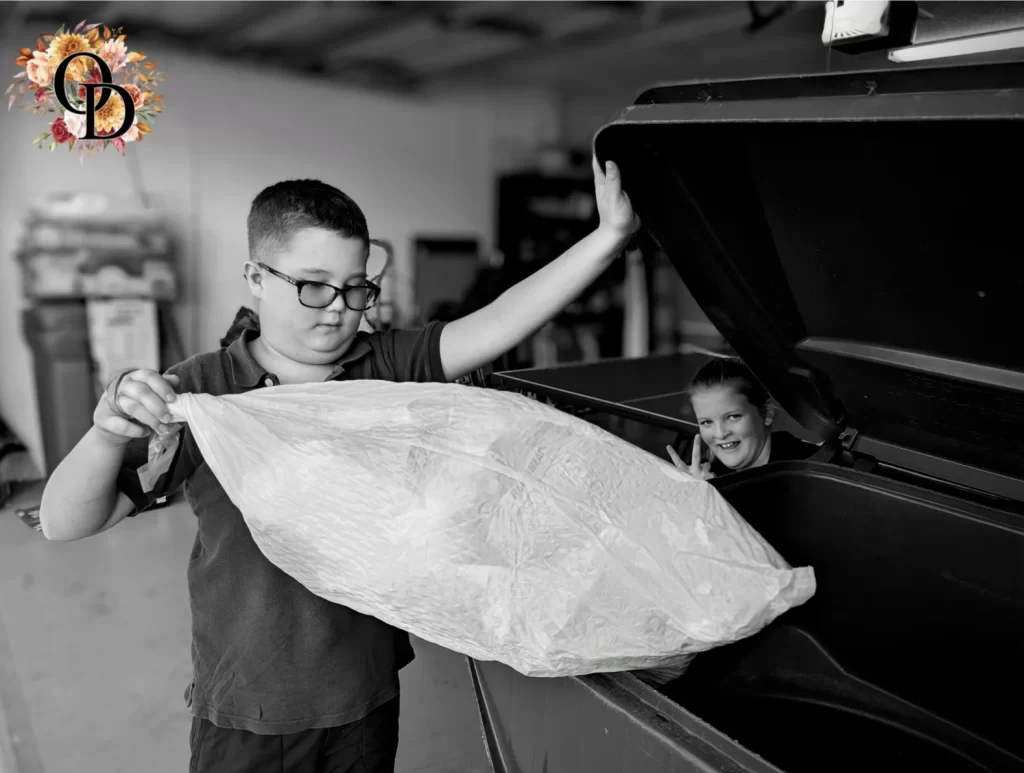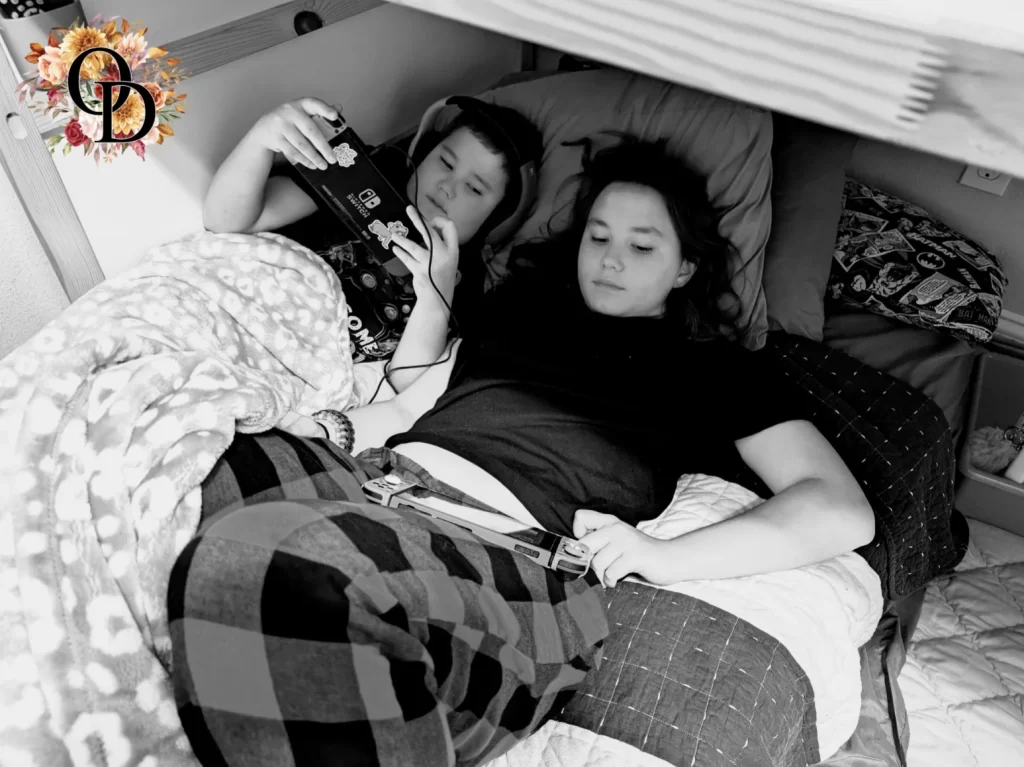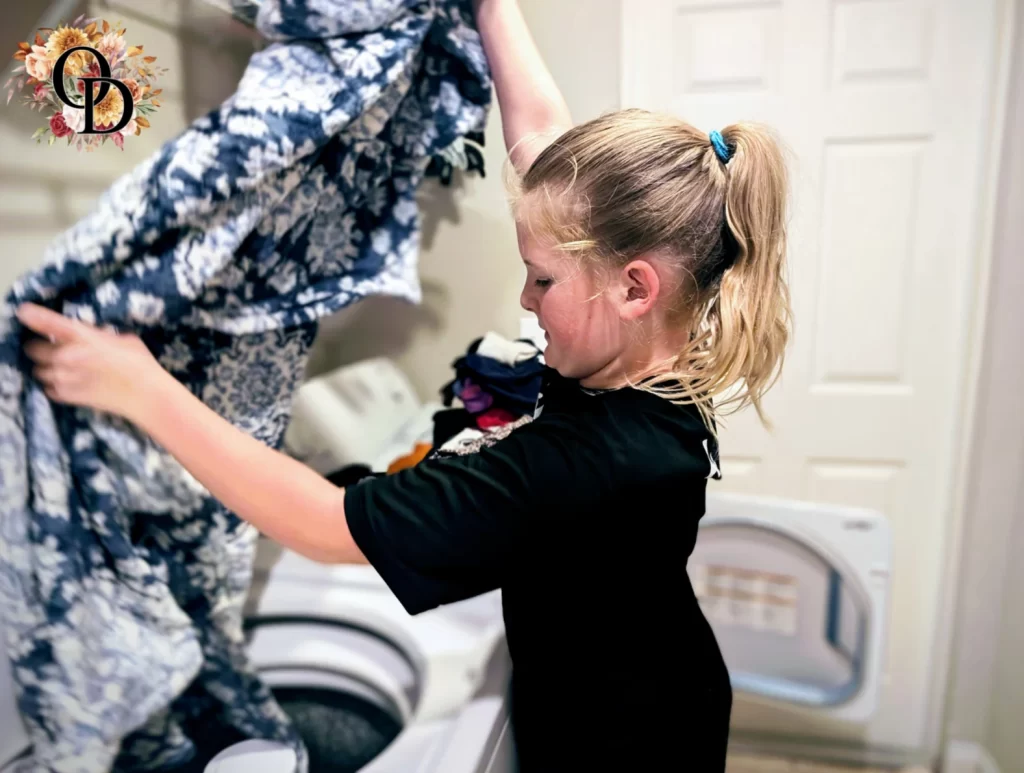Disclaimer:
The tips and insights we share come from our own experiences and are meant to be helpful, but they shouldn’t replace professional medical or psychological advice. For any specific concerns about your child’s health, development, or well-being, it’s always best to reach out to a qualified healthcare or educational professional. For more details, check out our Blog Disclaimer.
As parents, we want to raise independent, responsible kids who can confidently tackle the real world. One of the simplest yet most effective ways to build these skills is by involving them in age- appropriate chores. But let’s be honest, getting kids to help out isn’t always easy.
The good news? Science is on our side. A study published in the Journal of Developmental & Behavioral Pediatrics found that children who consistently do chores develop better self-regulation, time management, and problem-solving skills. Plus, they tend to have stronger academic and social skills later in life. In short, those small, everyday tasks are shaping them into capable, well-rounded individuals.
Why Kids Need Chores:
Chores may seem like simple household tasks, but they serve a much bigger purpose in a child’s development. Here’s why assigning chores is essential:
- Builds Responsibility – Completing tasks teaches kids to take ownership of their actions and understand the importance of contributing to the family.
- Develops Work Ethic – Learning to complete a task, even when it’s not fun, helps children build perseverance and discipline.
- Teaches Time Management – Juggling school, play, and chores helps kids understand how to prioritize tasks and manage their time effectively.
- Encourages Teamwork – When everyone pitches in, kids learn that being part of a family means working together toward a common goal.
- Prepares Them for Adulthood – Knowing how to do laundry, cook, and clean sets kids up for success when they eventually live on their own.
The Consequences of Skipping Chores
When kids don’t have regular responsibilities at home, they miss out on essential life skills. Without chores, children may struggle with independence, accountability, and self-discipline. They may also develop unrealistic expectations about adulthood, where daily responsibilities don’t just disappear. Studies suggest that skipping chores can lead to lower resilience and poorer executive functioning. Skills that are crucial for problem-solving, time management, and perseverance.
Chores aren’t just about keeping the house clean; they teach kids that being part of a family means contributing to the household. By skipping chores, children miss the opportunity to develop teamwork skills, empathy, and a sense of responsibility.
Chores by Age Groups:
Every child develops at their own pace, but giving them age-appropriate chores helps build responsibility, independence, and important life skills. Below, you’ll find chore ideas tailored to different age groups to make it easy to get started.
Ages 2-3: Tiny Helpers in Training
At this age, it’s all about making chores fun and engaging. Kids love mimicking adults, so turn simple tasks into little “missions.”
- Put toys back in bins
- Wipe up small spills
- Help feed pets
- Place dirty clothes in a hamper
- Hand you items while setting the table
Ages 4-5: Building Independence
Preschoolers thrive on routine, so introducing consistent responsibilities can boost their confidence. Keep tasks simple and achievable.
- Make their bed (imperfect is fine!)
- Water plants
- Sort socks and fold small laundry items
- Help clear the table
- Dust low surfaces

Ages 6-8: Becoming More Capable
At this stage, kids can take on more responsibility and complete tasks with minimal supervision.
- Sweep floors
- Empty small trash cans
- Set and clear the table
- Fold laundry and put away clothes
- Load and unload the dishwasher

Ages 9-11: Learning Real-Life Skills
Preteens are ready for more advanced household tasks that require planning and follow-through.
- Help with meal prep (peeling veggies, making sandwiches)
- Take out the trash
- Mop floors
- Wash the family car
- Vacuum common areas
- Fold laundry and put away clothes

Ages 12-13: Gaining More Independence
At this stage, kids should start handling responsibilities that prepare them for their teenage years.
- Do their own laundry
- Cook simple meals
- Mow the lawn
- Babysit younger siblings (if mature enough)
- Help manage grocery lists and assist with shopping
Ages 14+: Preparing for Adulthood
Teenagers should be able to handle most household chores and manage responsibilities that mimic real-world expectations.
- Plan and cook full meals
- Deep clean bathrooms and kitchen
- Manage a budget for small expenses
- Run errands (if old enough to drive)
- Take on larger home maintenance tasks
Making Chores Fun & Avoiding Battles
If your kids resist chores (totally normal), try these tricks to keep things on track:
✔ Make It a Game: Use timers, play music, or create a challenge to see who finishes first.
✔ Use a Reward System: Stickers, extra playtime, or a small allowance can boost motivation.
✔ Work Together: When chores become a family activity, they feel less like a burden.
✔ Encourage, Don’t Criticize: Focus on effort, not perfection.
✔ Rotate Tasks: Switching up chores can keep things from getting boring.
✔ Give Them Choices: Let kids pick between a couple of tasks to give them a sense of control.

Chores Today, Life Skills for Tomorrow
Chores are more than just tasks on a to-do list. They’re opportunities to teach responsibility, teamwork, and essential life skills. By involving kids in age-appropriate household responsibilities, we help them build confidence and prepare them for the future.
Start small, be consistent, and celebrate their efforts. With the right approach, chores can become a positive part of family life rather than a dreaded chore (pun intended!).
Stay tuned! I’ll be adding free printable chore charts for each age group soon! Perfect for keeping your little helpers on track. Be sure to subscribe to our newsletter or bookmark this page so you don’t miss out!
What chores do your kids help with at home? Drop a comment below! I’d love to hear what works for your family.






